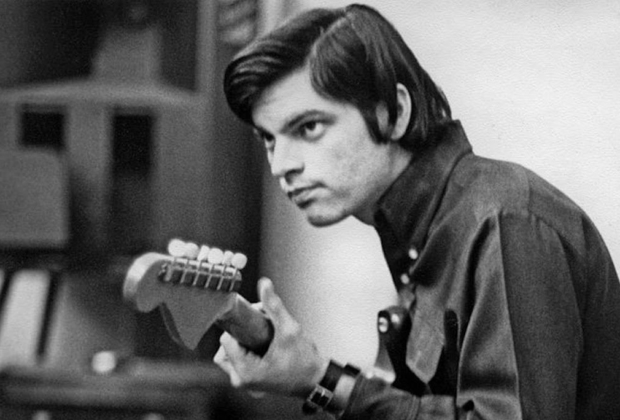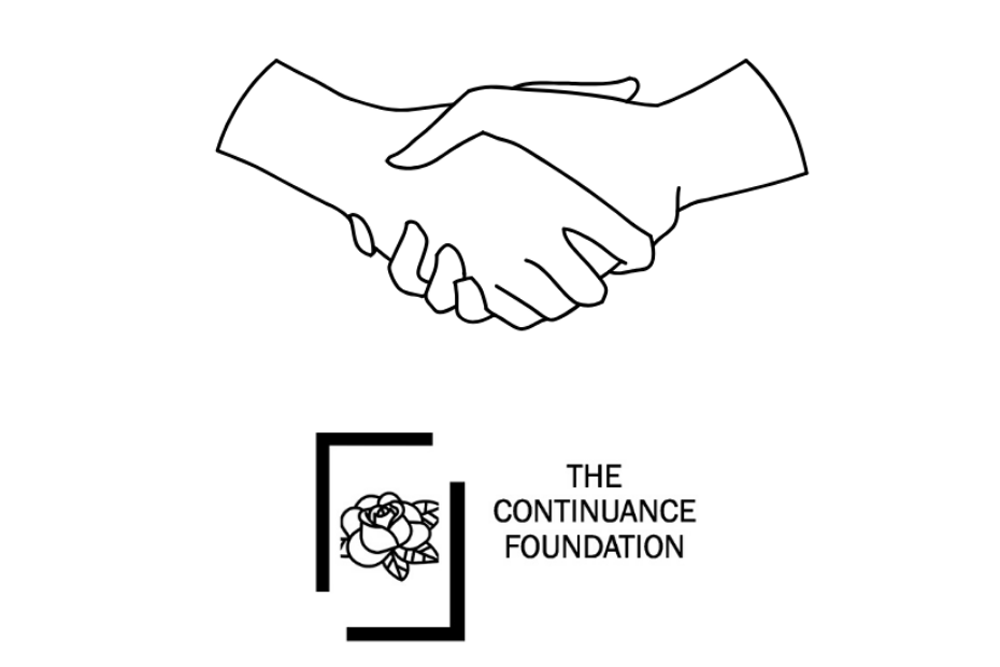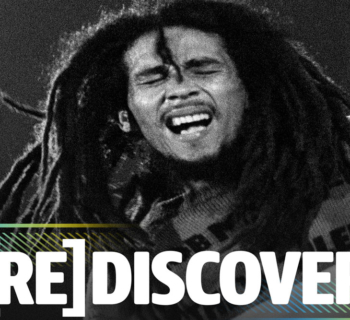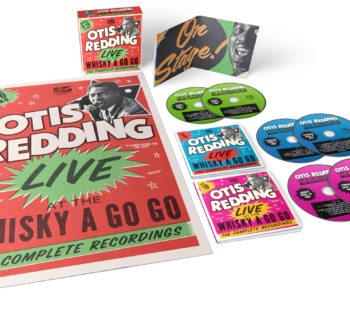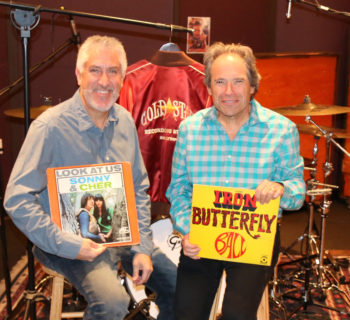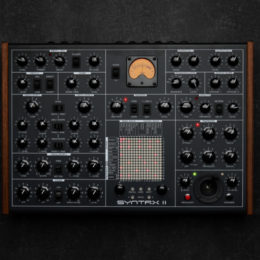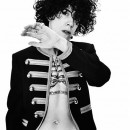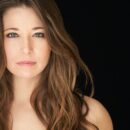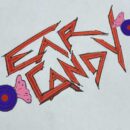Guitarist Jan Savage, October 23, 1942-August 5, 2020, who was born Buck Jan Reeder, of the American rock band the Seeds died in early August, according to a report in The Ada News and a subsequent Facebook posting that announced his passing.
Formed in 1965 in Los Angeles, the Seeds, guitarist Savage, keyboardist Daryl Hooper, drummer Rick Andridge and singer Sky Saxon were an influential pioneering psychedelic and garage rock outfit who offered a whole lot more for pop culture than their hit single “Pushin’ Too Hard.”
This century, owing to the popularity and the durability of the group’s GNP record label gems, a plethora of licensing deals for TV, film and commercials has resulted in licensing master tapes in movies. “Pushin’ Too Hard” was utilized in Air America, while “Mr. Farmer” was briefly heard in Almost Famous.
“NIKE also licensed ‘Pushin’ Too Hard” for a product campaign which was broadcast worldwide on The Olympics from London. “Can’t Seem to Make You Mine” touted Axe Men’s Cologne in a national TV spot. “Can’t Seem To Make You Mine” is also heard in the spring 2014 Jimi Hendrix screen portrayal All Is By My Side.
The Seeds’ legacy is acknowledged by Garbage, on occasion, encoring at their shows with “Can’t Seem to Make You Mine.” The band also cut a studio rendition of it as well.
Future Star Wars director/producer, George Lucas, in his 1967 student film at the University of Southern California, The Emperor, profiling KRLA DJ, Bob ‘Emperor’ Hudson, used the Seeds’ “Rollin’ Machine” in the soundtrack at the top of his movie,
The well-received Seeds long form 110+ minute movie documentary THE SEEDS Pushin’ Too Hard, directed and produced by Neil Norman for GNP Crescendo was initially released in 2015.
Norman conducted extensive new interviews about the Seeds. Subjects lensed by Norman include Iggy Pop, Mark Weitz of the Strawberry Alarm Clock, Johnny Echols from Love, Kim Fowley, photographer Ed Caraeff, deejay Rodney Bingenheimer, Richard France, a roadie from their heyday, the Bangles, concert promoter Jim Salzer, Bruce Johnson of the Beach Boys, and myself.
Humble Harve (Miller), the onetime KHJ and KBLA DJ who supported and introduced the Seeds at Los Angeles area shows in their heyday is also featured in a voice over capacity.
A handful of years ago Ace Records in the UK reissued the domestic GNP Seeds’ expanded edition Future and Raw & Alive albums were re-released in 2014 as double disc sets on the 60 year old independent GNP Crescendo label, following 2013 reissues The Seeds and Web of Sound.
Earler this decade Ace distributed a new vintage Seeds’ collection, Singles A-sides and B-sides 1965-1970. The original single versions of the Seeds’ celebrated run of 45s. Includes the garage classics ‘Can’t Seem To Make You Mine’ and ‘Pushin’ Too Hard’ along with many non-LP items, including the bands swansong 45s on MGM.
Visit www.gnpcrescendo.com
“Of all the Nuggetarian bands that came to psychedelic light in the Gar Age, the Seeds brought rock back to its most hypnotic elementals,” proclaimed writer, musician, Patti Smith group member, and Nuggets box compiler/producer, Lenny Kaye who emailed me in March 2015.
“This docu-drama provides a heartfelt insight into the band's inner universe, their time and place, a behind-the-scenarios look at a group whose impact would resonate throughout the coming of punk and beyond. We are truly up in their room, and it feels so good....”
I interviewed Jan Savage and Daryl Hooper in 2014.
Portions of our conversation were published in my book Turn Up The Radio Rock, Pop and Roll in Los Angeles 1956-1972.
“When we recorded with a bass player on our recordings, Harvey Sharpe, he brought a new perspective to the low end and that freed up Daryl from playing piano bass to be more creative,” explained Savage, who was always proud of his Native American Indian heritage.
“In 1965, before I met Rick, Daryl and Sky and before we first did any recording, I lived in South Hollywood, near the Melrose and Vine area. Many of the starving musicians lived in that neighborhood. The Byrds, Sonny & Cher, when they were Caesar & Cleo… Everybody within one year had a hit. In 1966 the Doors were our opening act at college concerts up and down the California coast. We had the same booking agency.”
“In their prime—1965 to 1968--the Seeds crystallized a crucial moment,” wrote journalist and pop culture historian, Kirk Silsbee. “They innovated a driving, attitude-laden rock that almost defined the Sunset Strip explosion. Songs like ‘Pushin’ Too Hard,’ ‘Can’t Seem to Make You Mine,’ ‘Mr. Farmer’ and ‘Trip Maker’ melded psychedelia, rock and blues with an undercurrent of Punk and Goth.”
“It was a keyboard-driven band that used sinister minor chords, a development that presaged the Doors,” Kirk Silsbee suggested. “Sky Saxon’s sneering, slack-jawed vocals marked him as one of the early punks. Along with Arthur Lee of Love, Sean Bonniwell of the Music Machine and the Chocolate Watchband’s Dave Aguilar, he was one of the best of the post-Jagger/pre-Morrison singers.”
In the June 15, 2009 L.A. Record website, Nels Cline, current Wilco guitarist, posted a comment when having learned about the death of Saxon. In My First Rock Idol, Cline wrote, “I am truly saddened to learn of the death of Sky Saxon. As a boy growing up in Los Angeles, Sky Saxon was my first rock idol.
“The Seeds’ music was important to me, sure, but Sky’s amazing charisma—as he appeared rather ubiquitously on TV shows like Boss City and The Groovy Show and American Bandstand in 1966—67 was galvanizing. I would stare in disbelief as he—clad in shiny satin Nehru shirts bedazzled with some gaudy brooch—would gyrate around lasciviously, holding the microphone in every cool way imaginable. He seemed from another planet. I thought he was amazing.
“I feel lucky to have ever even seen him on TV, yet alone to have played some wild, extemporaneous psychedelia with him. They say Mick Jagger copped tons of his moves and style, and I believe it. But there was so much more to this man that remains to be revealed.”
The Hooper and Savage team also commented on a few recordings by the Seeds’
Then there is their urgent care plea, “Can’t Seem to Make You Mine” selection. Jan Savage sheds some light on their infectious and enduring recording.
“Compared to the other things we were doing in clubs at that time, like ‘Pushin’ Too Hard’ and ‘No Escape,’ that song was a change of pace. And we needed something like that to show development and a little bit of originality.”
“In the early material,” reinforced Hooper, “Sky would have different relationships with ladies, some good some bad and a lot of the music of that era it was a good time. Love was portrayed or perhaps a not-so-good love happening story that occurred. ‘Can’t Seem to Make You Mine’ was about a girl again. Longing for and trying to make things right, and couldn’t quite do it. They were simple stories. But they were good stories.”
“As far as ‘Pushin’ Too Hard,’ Sky wrote the lyrics to the song and we kind of came up with the beat and the rhythm to it,” remembered Hooper.
“It was written about a girlfriend, who literally was raggin’ on Sky all the time. It was sort of that intense driving song we would perform in clubs. We found that everyone got up and danced. We were on tour with Buffalo Springfield, the Shadows of Night and our record was just starting to be played. And we would hear it riding on a bus. ‘Listen. There’s our song. This is cool.’ And by the time we got back to Los Angeles we had a huge record. Behold, the next gig in L.A. there were hundreds of screaming fans. We were a little bit in awe of the situation. Any recording artist has that dream but you can’t predict it or know when it might happen.
“’Mr. Farmer,’ Hooper recalled “I can tell you I literally wrote the music to that song. I woke up at three in the morning with the tune going through my head. I got up, I put it on a little recorder and in a few days I presented it to Sky. ‘What do you think? Wanna write some lyrics?’ And he immediately did and it produced that song.”
Daryl Hooper and Jan Savage both provided fond memories of their drummer Rick Andridge.
“Rick was the basic foundation,” stressed Savage. “He was on the beat all the time. We could depend on Rick whether we were on stage or in the studio. He counted it off and was on the beat. He didn’t have to worry about speeding up in the middle of the song, or slowing down somewhere else. You knew he was right on it.”
“I think the Seeds as a whole played off of one another,” Hooper underscored. “It took four people to make the Seeds. Sky couldn’t have done it without us and we couldn’t have done it without Sky. He was the lyricist and the front man and we were the foundation behind him that came up with the melodies, chord patterns and rhythms. We all had out own little job. We worked together. Put it in here or there.’ It was a team. Basically, in a nutshell, you had four people that clicked together as musicians.
“The audience could not tell that we hadn’t been playing together for years. “Sky started writing some lyrics,” mused Hooper, “and would come to us. I’d play a few chords. Jan would play a little lick on the guitar. All of a sudden, sometimes within ten minutes a song would materialize.
“We started at Bido Lido’s. In two months we were adding originals into our set and we found that the audience was responding more to our songs than the cover songs. One night we looked at each other and said, ‘The audience is responding to our songs. No more cover versions.’ From that day on we did no more covers.
“On the television shows we did they were mostly lip sync. You got used to it. That was the technology of the time. You had no choice whatsoever. Most shows did not have the technology to have you come out sounding decent live. That was the way it was. Some of the times Sky’s vocals were live. We got used to it OK. They were playing your music in the background. Your instrument may not have been plugged in but you’re still playing right along with it, and singing along with it.”
“The best songs come from personal emotion,” concluded Savage. “There were a lot of complimentary things we did together.”
“We did an album A Full Spoon Of Seedy Blues,” emphasized Hooper.
“Muddy Waters wrote one of the songs and played harmonica on the session. It was at RCA. It was a very fun time. Sky had met Muddy and they clicked. Sky played some of his songs, sang them. He talked Muddy into coming to the session with his guitar player, Luther Johnson.”
“That was the first time we met him. And talk about a down to earth guy,” beamed Savage. “He was fantastic. He really liked us. It was an amazing experience. One of the most memorable sessions. The greatest compliment he ever gave us,” marveled Savage, “was, ‘You have a lot of soul for white boys.’”
(Music historian HARVEY KUBERNIK saw the Seeds at the 18,000 seat Hollywood Bowl in 1967, and venues all around Southern California 1966-1968.
Kubernik is the author of 19 books, including Canyon Of Dreams: The Magic And The Music Of Laurel Canyon and Turn Up The Radio! Rock, Pop and Roll In Los Angeles 1956-1972. Sterling/Barnes and Noble in 2018 published Harvey and Kenneth Kubernik’s The Story Of The Band: From Big Pink To The Last Waltz. For 2021 they are writing a multi-narrative book on Jimi Hendrix for the same publisher.
Otherworld Cottage Industries in July 2020 has just published Harvey’s 508-page book, Docs That Rock, Music That Matters, featuring Kubernik interviews with D.A. Pennebaker, Albert Maysles, Murray Lerner, Morgan Neville, Michael Lindsay-Hogg, Andrew Loog Oldham, John Ridley, Curtis Hanson, Dick Clark, Travis Pike, Allan Arkush, and David Leaf, among others.
In 2020 Harvey served as Consultant on Laurel Canyon: A Place In Time documentary directed by Alison Ellwood which debuted on May 2020 on the EPIX/MGM television channel. It was just nominated for Three Emmy nominations.
Kubernik’s writings are in several book anthologies, most notably The Rolling Stone Book Of The Beats and Drinking With Bukowski. He was the project coordinator of the recording set The Jack Kerouac Collection.
Kubernik has just penned a back cover book jacket endorsement for author Michael Posner’s book on Leonard Cohen that Simon & Schuster, Canada, will be publishing this fall 2020, Leonard Cohen, Untold Stories: The Early Years). •

